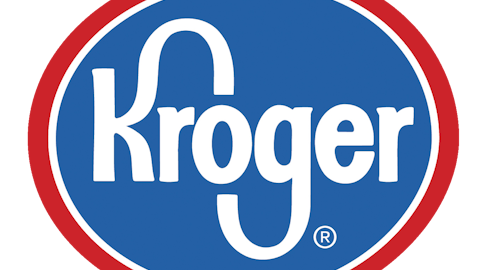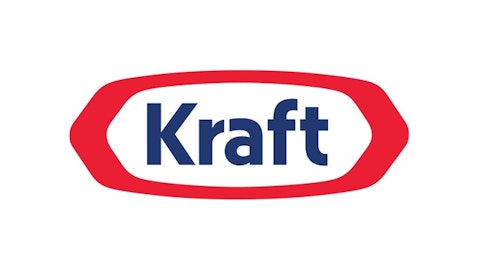The campus of the FDA’s Center for Food Safety and Applied Nutrition is under siege today, and it has everything to do with Monsanto Company (NYSE:MON). Members of the Occupy Monsanto movement are staging an all-day “eat-in” to label food products that contain genetically engineered (GE) ingredients. They’re easy to dismiss, like an especially curmudgeonly Facebook commenter who described them as “hordes of crazed, anti-Monsanto Company (NYSE:MON), vegetarian hippies” did. That may well be true, but they are part of a broader movement that could pose a challenge to ag biotech’s comfortable dominion over our food supply.

Label it
There is a growing movement among grassroots activists, NGOs, and natural and organic food companies to require labeling of food products containing GE ingredients. Whole Foods Market, Inc. (NASDAQ:WFM), the leading natural foods grocer, recently committed to labeling all of its products voluntarily within five years. Big Food companies spent heavily on campaigns against a proposition in California that would have mandated labeling and successfully torpedoed the bill. But there’s more where that came from. Vermont, Connecticut, and Iowa all have some form of labeling requirement making its way through the legislative process.
The New York Times recently reported that 20 major companies, including PepsiCo, Inc. (NYSE:PEP), ConAgra Foods, Inc. (NYSE:CAG), and Wal-Mart Stores, Inc. (NYSE:WMT), met in Washington, D.C., to lobby the FDA for a federal GE-labeling law. The idea is that companies prefer one federal law to a proliferation of state laws that would add to their compliance burden. Implicit in that notion is that a labeling requirement is inevitable.
All three branches of government?
The Supreme Court heard arguments on Feb. 21 in the case of Bowman v. Monsanto Co (NYSE:MON). The central question is whether farmers who buy Monsanto Company (NYSE:MON)’s Roundup Ready soybean seeds are free to do as they wish with the seeds harvested from those plantings. The justices seemed almost unanimously opposed to the farmers’ arguments, and they appear poised to rule in Monsanto Company (NYSE:MON)’s favor. In a highly unusual move, the U.S. government not only filed an amicus brief supporting Monsanto Company (NYSE:MON) but also sent a government attorney to argue on the company’s behalf, highlighting the Obama administration’s support for several elements of Monsanto Company (NYSE:MON)’s argument.
In March, Congress passed and President Obama signed H.R. 933, a law that anti-GE advocates have dubbed the “Monsanto Protection Act.” Section 735 strips federal courts of the authority to halt the sale and propagation of genetically modified seeds and crops if concerns about health risks arise during safety tests. Did you catch that? Let’s pretend we’re talking about cribs instead of seeds. The corollary law would then say that if little babies’ fingers kept getting chopped off in crib safety testing, the courts couldn’t get involved. Disgraceful.
Senator Roy Blunt (R-Mo.), one of section 735’s biggest supporters, worked with Monsanto to craft the language in the bill. Section 735 is attached to a continuing resolution that only holds for the next six months, so it is not yet a part of permanent federal law. Monsanto euphemistically calls section 735 the “Farmer Assurance Provision.” As with the Supreme Court case, this legislation could have broad implications for agricultural biotechnology companies, especially if it becomes part of permanent federal law.
Effectively, Monsanto may have all three branches of government in its hot little hands. You might be inclined to admire this, especially if you’re just focused on stock price. Indeed, if you’d bought shares on this day 10 years ago, you’d have enjoyed a nifty 31% annualized return. Not too shabby.
Battlestations
Many activists are concerned about the extent to which a small number of corporations control the majority of the world’s food production capacity. The Center for Food Safety points out (link opens a PDF) that three companies — Monsanto, DuPont Fabros Technology, Inc. (NYSE:DFT), and Syngenta AG (ADR) (NYSE:SYT) — control 53% of global commercial seed production. They do this on the strength of GE technology.
Activist shareholders are pushing back. According to the Sustainable Investments Institute, shareholders have filed GE-related resolutions with Monsanto, DuPont Fabros Technology, Inc. (NYSE:DFT), and Kraft Foods Group Inc (NASDAQ:KRFT). These resolutions aren’t yet enough to alter fundamental business strategies. The resolution filed with Monsanto this year only garnered 7.6% of the vote, up from 5.7% in 2012. DuPont’s annual meeting is forthcoming, but the 2011 resolution won just 6.3% of votes. Kraft Foods Group Inc (NASDAQ:KRFT) has a GE-related proposal on its proxy statement for the first time, scheduled for vote at its annual meeting on May 22. But the number of these resolutions is on the rise, and it’s becoming harder for companies to ignore them.
Safe? Probably. But smart?
The debate over GE technology makes a Tyson-Holyfield fight look like afternoon tea. I don’t have the stomach for the back and forth, so here’s my quick summary of how the playing field looks so far: GE technology does not appear to be harmful to human health, and while it’s doing some funky things out in the environment, none of those are dire. While it’s still in the super-early days, the doomsday prognosticators got it wrong.
But that’s not really what I’m worried about.
The Nature Biotechnology journal published an interesting study this February. It found that several varieties of GE seeds actually reduce yields when compared to conventional counterparts. Researchers analyzed 20 years of data from test plots to reach their findings. If this holds true more broadly, it undermines the biggest case for GE technology.
The New York Times’ Mark Bittman asked a fascinating question in a recent Op Ed: Why does genetic engineering need protection? Maybe because it’s not that awesome. Bittman points out that in 20 years of applied genetic engineering to crop science, there’ve only been two real successes: crops resistant to Roundup and crops that produce their own insecticide. The first has already failed and the second appears to be headed down the same path. Other than that, it’s pretty mediocre.
Might we be facing a case of tremendous risk with little real return on a massive scale? If the world wakes up one day and realizes that Monsanto’s emperor has no clothes, what will its shares be worth then?
The article Is Monsanto Worthless? originally appeared on Fool.com.
Sara Murphy has no position in any stocks mentioned. Follow her on Twitter @SMurphSmiles. The Motley Fool recommends and owns shares of Whole Foods Market (NASDAQ:WFM).
Copyright © 1995 – 2013 The Motley Fool, LLC. All rights reserved. The Motley Fool has a disclosure policy.

